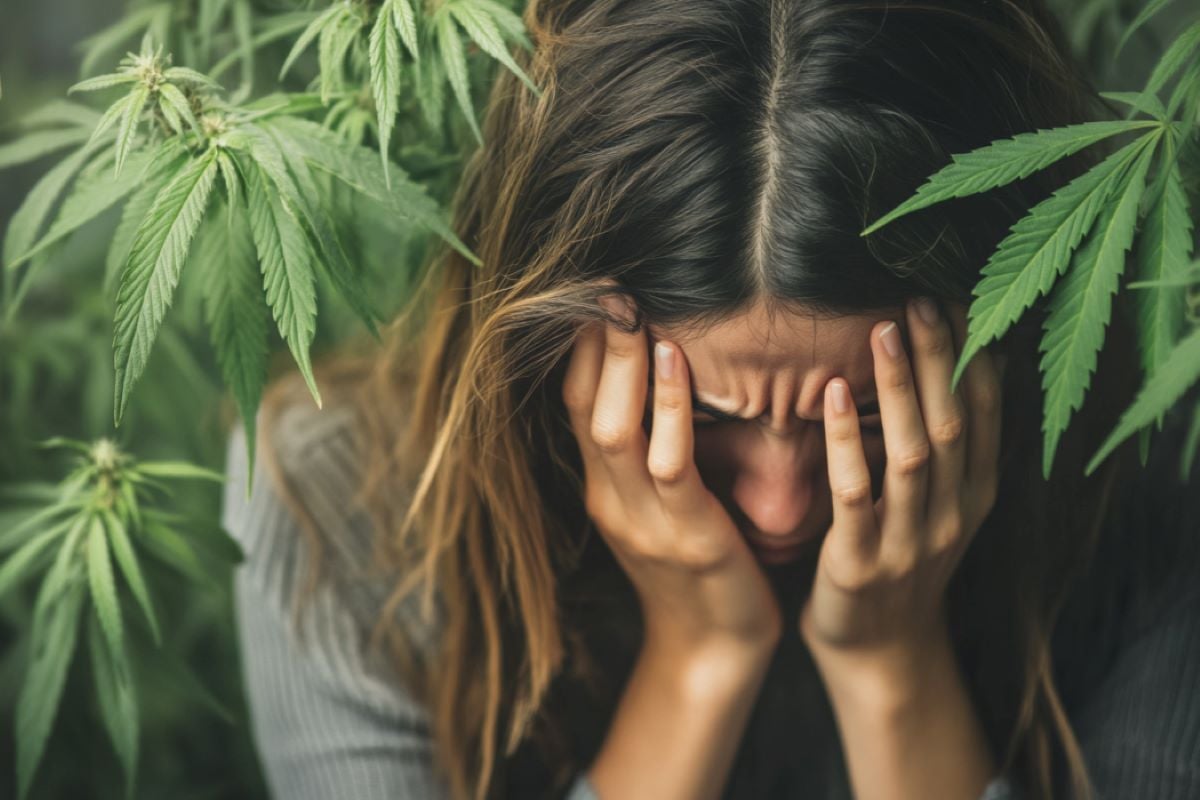How soon will your competent? doctor prescribe this for you? Or are EXACT 100% RECOVERY PROTOCOLS already provided to you so you don't have massive anxiety about recovering from your stroke? So which is it? The correct way, solving the primary problem of 100% recovery? Or the half-assed method of treating the secondary problem of anxiety?
Post stroke anxiety(20% chance).
Cannabigerol (CBG) Reduces Anxiety and Improves Memory
Summary: A new study shows that Cannabigerol (CBG) significantly reduces anxiety without the intoxicating effects of THC. The clinical trial found that 20 mg of CBG reduced anxiety and stress in participants, with memory enhancement as an unexpected benefit. The study highlights CBG’s potential as an alternative anxiety treatment. Further research is needed to confirm these findings and explore additional benefits.
Key Facts:
- CBG significantly reduced anxiety and stress in a clinical trial.
- CBG did not produce the intoxication or cognitive impairments associated with THC.
- The study found CBG may enhance memory recall.
Source: Washington State University
A lesser-known cannabinoid that is gaining in popularity Cannabigerol (CBG) effectively reduced anxiety in a clinical trial without the intoxication typically associated with whole plant cannabis. It may even have some memory enhancing effects, according to a new study in Scientific Reports.
For the study, Carrie Cuttler, an associate professor of psychology at Washington State University, and colleagues conducted the first human clinical trial investigating the acute effects of CBG on anxiety, stress and mood.

The research revealed that 20 mg of hemp-derived CBG significantly reduced feelings of anxiety at 20, 45 and 60 minutes after ingestion compared to a placebo. Stress ratings also decreased at the first time point compared to the placebo. The findings align with survey data from a previous study led by Cuttler that indicated 51% of CBG users consume it to decrease anxiety, with 78% asserting its superiority over conventional anxiety medications.
“CBG is becoming increasingly popular, with more producers making bold, unsubstantiated claims about its effects,” Cuttler said. “Our study is one of the first to provide evidence supporting some of these claims, helping to inform both consumers and the scientific community.”
For the study, Cuttler’s team at WSU and colleagues at the University of California, Los Angeles, conducted a double-blind, placebo-controlled, experimental trial with 34 healthy cannabis users. The participants completed two sessions over Zoom during which they provided baseline ratings of their anxiety, stress and mood.
They then ingested either 20 mg of hemp-derived CBG or a placebo tincture mailed to them ahead of time. The participants then rerated their mood, stress, anxiety and other variables such as feelings of intoxication and whether they liked how the drug made them feel at three different time points post-ingestion. Additionally, they reported on potential side effects like dry eyes and mouth, increased appetite, heart palpitations and sleepiness.
The sessions were repeated a week later with the participants taking the alternate product prior to completing the same assessments. The design ensured that neither the participants nor the research assistants knew which product was administered.
One of the most surprising outcomes was CBG’s effect on memory. Contrary to expectations based on THC’s known effects on memory, CBG significantly enhanced the ability to recall lists of words. Participants were able to recall more words after taking 20 mg of CBG than after taking a placebo.
“We triple-checked to ensure accuracy, and the enhancement was statistically significant,” Cuttler said.
Furthermore, the study found that CBG did not produce cognitive or motor impairments, or other adverse effects commonly associated with THC, the psychoactive ingredient in cannabis. Participants in the experimental group reported low intoxication ratings and minimal changes in symptoms like dry mouth, sleepiness and appetite. Contrary to previous self-report surveys where users touted CBG’s antidepressant effects, the participants in the current study did not report significant mood enhancement after taking CBG.
While the research is promising, Cuttler cautions the results should be interpreted carefully due to the study’s limitations. The use of experienced cannabis users, the modest dose of CBG and the timing of assessments might have influenced the findings. Additionally, the study’s remote nature, conducted via Zoom, and lack of physiological measurements further constrain the conclusions.
“We need to avoid claims that CBG is a miracle drug. It’s new and exciting, but replication and further research are crucial,” Cuttler said. “Ongoing and future studies will help build a comprehensive understanding of CBG’s benefits and safety, potentially offering a new avenue for reducing feelings of anxiety and stress without the intoxicating effects of THC.”
Moving forward, Cuttler and her team are designing a new clinical trial to replicate their findings and include physiological measures such as heart rate, blood pressure and cortisol levels. They also plan to extend the research to non-cannabis users. Additionally, Cuttler is planning a study on CBG’s effects on menopause symptoms in women.
About this anxiety, memory, and psychopharmacology research news
Author: Sara Zaske
Source: Washington State University
Contact: Sara Zaske – Washington State University
Image: The image is credited to Neuroscience News
Original Research: Open access.
“Acute effects of cannabigerol on anxiety, stress, and mood: a double-blind, placebo-controlled, crossover, field trial” by Carrie Cuttler et al. Scientific Reports
No comments:
Post a Comment